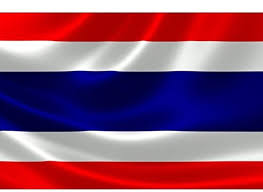January 1 marked the official launch of the African Continental Free Trade Area (AfCFTA), a trading bloc with the potential to rival any other in the world.
Morocco takes part in the world's largest free trade agreement


Morocco’s new free trade agreement unites 54 African nations, making it the largest free trade agreement ever in terms of number of member states. Similar to the idea behind the EU, the pact aims to remove trade barriers between African nations and create a new economic partnership in one of the world's most resource-rich regions
The new trade deal "will fundamentally change the economic fortunes of our continent," South African President Cyril Ramaphosa said in his New Year speech. "This is the start of a new era of trade among African countries," he said confidently, adding that Africa "will now realize its great potential from its abundant natural and human resources."
Promises
The trade deal has the potential to compete with large trading blocs like the EU and the Association of Southeast Asian Nations (ASEAN). AfCFTA will bring together 1.2 billion people and a GDP of 3 trillions of dollars, creating a bloc that could hold the economic power of major nations like India and China.
Morocco's accession to this continental free trade agreement aims to boost trade among African nations which has historically been remarkably low. African countries often export more to the former colonial powers in Europe and the major industrial powers in Asia.
Amid a historic and intertwined economic and health crisis caused by the COVID-19 pandemic, Morocco and Africa as a whole have game-changing potential in this new free trade agreement. Few places on earth have so much natural wealth and human resources available. The African population is young, ambitious and increasingly educated.
The Internet has reduced barriers for African youth and allowed many of them to be part of the global community, despite the physical barriers they face at the frontiers of the West. The future of young Africans does not lie in opportunities abroad, but rather in creating new and lasting opportunities at home.
Obstacles
The launch of the AfCFTA free trade agreement is in many ways still symbolic for Morocco and its African partners. Even though the UN considers the bloc to have the potential to increase intra-African trade by over 50%, the practical reality is still being developed.
Many African countries, including Morocco, have not yet ratified the free trade agreement. Out of a total of 54 members, 20 have yet to formalize the agreement. While trade deals with former colonial powers and economic giants like the United States and China grab the headlines, the New African Free Trade Agreement has often been overlooked by African governments and the press.
For potential bloc competitors, this neglect serves as a means of hindering and obscuring progress. The sooner all member states, including Morocco, ratify the free trade agreement, the sooner its economic promises can come true.
With a full-fledged and functioning AfCFTA, Africa is truly at the forefront of history. Yet diplomatic mistrust and disagreements could delay important early progress that could create valuable momentum. Genuine mutual efforts to achieve AfCFTA could make 2021 not the year of vaccination campaigns or Brexit, but the year of economic union for the richest region in the world.
Path to prosperity
The AfCFTA was supposed to begin on July 1, 2020. Amid a global pandemic, the historic moment has been postponed. Now that the world is grappling with the economic fallout from the pandemic and cases continue to rise, AfCFTA should become a priority as a potential route of recovery.

 বাংলা
বাংলা  Spanish
Spanish  Arabic
Arabic  French
French  Chinese
Chinese  Thai
Thai 